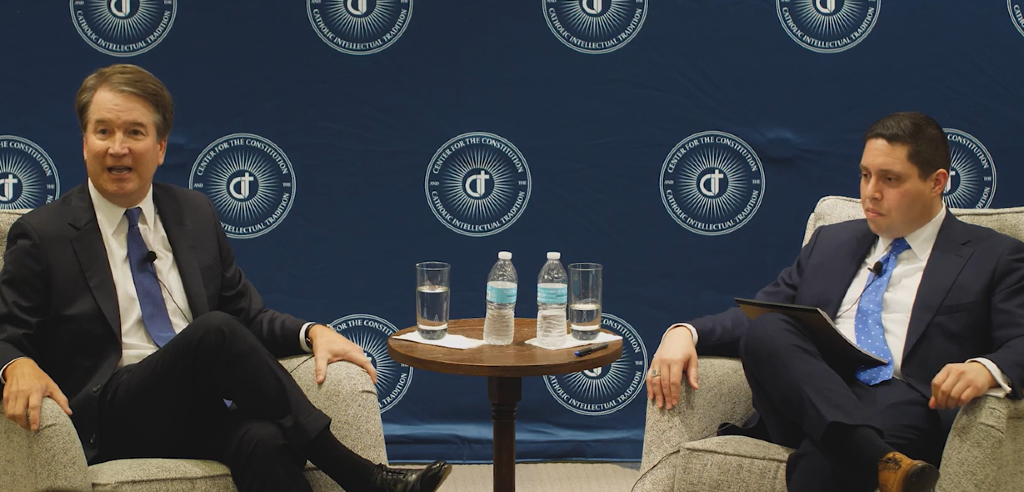Kavanaugh Calls Loper Bright a 'Course Correction'
Justice says the Chevron Doctrine distorted separation of powers.
Ted Hearn

WASHINGTON, Sept. 27, 2024 – A Supreme Court ruling in June aimed at restricting the reach of regulatory agencies like the Federal Communications Commission was "a course correction" to keep the separation of powers in proper balance, Justice Brett M. Kavanaugh said Thursday.
Kavanaugh was referring to the decision in Loper Bright Enterprises v. Raimondo, which overtuned the Chevron Doctrine from 1984 that accorded the FCC and other agencies broad judicial deference in the interpretation of ambiguous statutes.
"What we did in Loper Bright – in the Chief Justice's opinion – was I think a course correction, consistent with the separation of powers to make sure the executive branch is acting within the authorization granted to it by Congress," Kavanaugh said in a discussion at Catholic University's Columbus School of Law in Washington.
Kavanaugh joined the 6-3 majority opinion in Loper Bright written by Chief Justice John G. Roberts. Kavanaugh did not issue a concurrence.
Critics of Loper Bright claim the ruling will transfer authority over highly complex and scientific issues from agency experts to generalist federal judges who lack the necessary subject matter expertise. Telecom policy analysts Blair Levin and Larry Downes have written that Loper Bright will suppress business investment and lead to less innovation.
Loper Bright, Kavanaugh said, was intended to ensure that administrative agencies were acting within the scope of their legislative authority.
"Now to be clear, don't over read Loper Bright. Often times, Congress will grant a broad authorization to an executive agency," he said.
Last week, FTC Chair Lina Khan said she feared that Loper Bright was a threat because the FTC Act of 1914 provided general authority to prohibit unfair methods of competition. But Kavanaugh said Loper Bright was not intended to bar Congress from making broad delegations of power.
"It's really important as a neutral umpire to respect the line that Congress has drawn, and when it has granted broad authorization, not to unduly hinder the executive branch from performing its congressionally authorized functions but at the same time not allowing the executive branch, as it could with Chevron in its toolkit, to go beyond the congressional authorization.
Kavanaugh, who joined the high court in 2018, previously served on the U.S. Court of Appeals for the D.C. Circuit, a court that frequently hears cases involving the FCC.











Member discussion